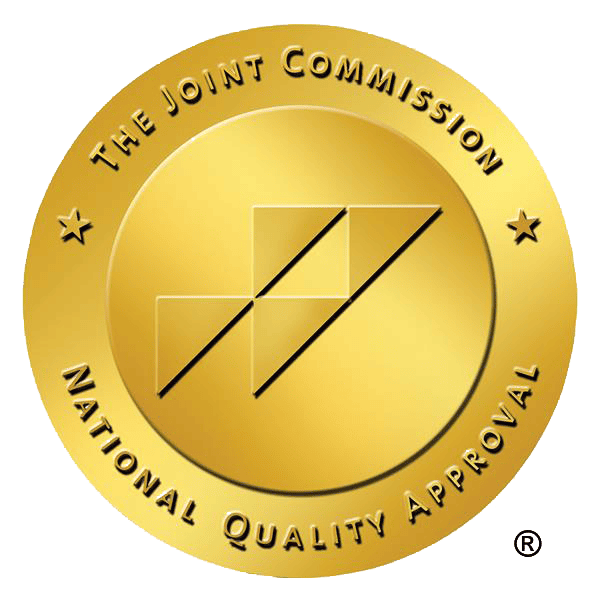Fentanyl—both medical and street grades—is a highly potent synthetic opioid. The drug has become 1 of the deadliest drugs in recent times due to its high risk for addiction and overdose. Individuals with fentanyl dependence seeking detox from this dangerous substance may struggle.
Some may be tempted to attempt at-home fentanyl detox without medical supervision. However, unsupervised detox can pose severe risks to an individual’s health and well-being.
Fentanyl: A Fatal Drug
Fentanyl, a powerful synthetic opioid, has earned its reputation as a fatal drug due to its potency and increased prevalence in illicit drug markets. This highly addictive substance is estimated to be 100 times more potent than morphine. This makes it particularly lethal when ingested or misused.
In addition, many street substances are now being mixed with fentanyl, further elevating the risks of overdoses and deaths. In recent years, fentanyl-related deaths have skyrocketed, surpassing overdose deaths from other opioids.
Fentanyl Dependence and Abuse
Fentanyl abuse creates a devastating cycle of dependence and addiction. The drug’s powerful effects can quickly lead individuals down a dangerous path as they chase the euphoria it provides.
Regular use builds tolerance rapidly, necessitating higher doses to achieve the desired high. This escalating cycle leads to an increased risk of overdose, death, and other serious health consequences.
Risks of At-Home Fentanyl Detox
Attempting an at-home fentanyl detox can expose individuals to significant risks and complications. Fentanyl withdrawal symptoms can be intense, including severe cravings, nausea, vomiting, insomnia, muscle aches, anxiety, and depression. Without medical supervision and support, these symptoms become overwhelming and may lead to relapse.
Furthermore, sudden cessation of fentanyl without proper medical intervention can result in life-threatening withdrawal symptoms or a rebound effect where the body craves even larger doses of the drug than before. This dangerous situation increases the risk of overdose. Additionally, if other people in the home abuse opioids or fentanyl, attempting at-home fentanyl detox will likely fail since there is no support system in place.
Complications of At-Home Fentanyl Detox
There are several cons of attempting at-home fentanyl detox. For starters, at-home detox lacks the necessary medical guidance and monitoring that can help manage withdrawal symptoms and ensure safety throughout the process. Then, there is an increased risk of complications from severe physical and psychological withdrawal symptoms, such as dehydration, malnutrition, electrolyte imbalances, or even self-harm.
There is also no access to medication-assisted treatment (MAT). MAT provides access to medications that can help address cravings and the more intense withdrawal symptoms. Furthermore, since there is no professional support and guidance during an at-home fentanyl detox, it increases the likelihood of relapse.
Why Is Fentanyl So Dangerous?
Fentanyl is a hazardous drug due to several factors. Fentanyl’s potency can lead to overdose, respiratory failure, and death, even from a small amount. It only takes about 0.00015 grams of fentanyl to have a significant risk of death, and at 0.0007 grams, death is very likely.
With fentanyl being mixed with other illicit substances, individuals are unaware they are consuming it, further increasing the risks of accidental overdose. Last but not least, the effects of fentanyl can be life-altering.
Short and long-term effects and signs of overdose include:
Short-Term Effects
- Euphoria and relaxation: Like other opioids, fentanyl produces a sense of intense pleasure and relaxation.
- Pain relief: Fentanyl is commonly used as a powerful painkiller in medical settings due to its effectiveness.
- Sedation: Fentanyl can induce drowsiness, leading to impaired cognitive function and coordination.
- Respiratory depression: One of the most dangerous effects of fentanyl is its ability to suppress breathing, potentially resulting in respiratory failure.
Long-Term Effects:
- Addiction and dependence: Continued use of fentanyl leads to dependence on it, making it difficult to stop using it without professional help.
- Tolerance: Continued use requires higher doses as the body adapts to the presence of fentanyl, increasing the risk of overdose.
- Cognitive impairments: Long-term fentanyl abuse has been associated with memory loss, confusion, difficulty concentrating, and decreased mental functioning.
Signs of Overdose:
- Respiratory distress: Shallow or difficult breathing, slow or irregular heartbeat, and difficulty breathing are common signs of fentanyl overdose.
- Extreme drowsiness or loss of consciousness: The person may become unresponsive, and unable to be awakened.
- Pinpoint pupils: Fentanyl overdose often causes constricted pupils that appear as small dots.
- Pale skin or blue lips and fingernails: Oxygen deprivation causes a bluish tint to the skin, indicating a lack of oxygen.
What Is the Fentanyl Detox Process in a Rehab Facility?
The fentanyl detox process in a rehab facility typically involves a comprehensive evaluation upon admission by healthcare professionals to assess their medical history, addiction severity, and any co-occurring mental health conditions. This assessment helps determine the appropriate detox approach.
In a rehab facility, medical staff provide 24/7 supervision to monitor vital signs, manage withdrawal symptoms, and ensure the individual’s safety. MAT may be used during fentanyl detox to alleviate cravings and manage withdrawal symptoms.
Rehab facilities also offer psychological support through individual and group counseling sessions. After completing detox, individuals are ready to transition into ongoing treatment programs based on their specific needs.
Medications Used to Treat Fentanyl Addiction
Some commonly prescribed medications for fentanyl addiction treatment include buprenorphine, methadone, naltrexone, and clonidine.
The medicines prescribed during detox will depend on the severity of addiction and other such factors. It is best for those struggling with fentanyl to get medical-assisted care to monitor side effects and withdrawal symptoms.
Live Fentanyl-Free Future with Supervised Detox in Austin, TX
Don’t risk at-home fentanyl detox and relapsing by taking the first steps to a fentanyl-free future at Prairie Recovery Center in Austin, Texas. We offer medically supervised fentanyl detox that prioritizes your safety and well-being. Our experienced medical professionals provide 24/7 support during the detox process, ensuring comfort as you break free from dependence on this dangerous drug.
Start your journey to a substance-free future by contacting us today.









